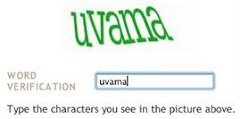Use the type of clause, phrase, or grammar indicated to complete the following sentence; you can add the phrase or clause before or after the clause below:
... it's time to get back to work now that the Easter holiday is over...
1. Use a phrase
2. Use a dependent clause
3. Use an independent clause
Note:you can still see previous Sentence Completion questions; they are posted in the archive in the side bar.
Monday, April 14, 2008
Subscribe to:
Post Comments (Atom)


8 comments:
1. It's time to get back to work now that the Easter holiday is over and everyone is rested.
2. My children are back in school; and it's time to get back to work now that the Easter holiday is over.
3. I had a great rest but it's time to get back to work now that the Easter holiday is over.
Tammy: #1--a clause, not a phrase (note the subject and verb); #2--an independent clause, and don't use a semicolon before "and"; #3--yes, but check the punctuation;-)
1. After break, it’s time to get back to work now that the Easter holiday is over.
2. It’s time to get back to work now that the Easter holiday is over when everyone is rested and relaxed.
3. It’s time to get back to work now that the Easter is over and everyone had a good time.
1. Tomorrow it's time to get back to work now that the Easter holiday is over.
2. Because I am busy, it's time to get back to work now that the Easter holiday is over.
3. It's time to get back to work now that the Easter holiday is over; I enjoyed the break.
1.Now that everyone is rested, it's time to get back to work now that the Easter holiday is over.
2.Meanwhile, it's time to get back to work now that the Easter holiday is over, so we can complete our group project.
3.It's time to get back to work now that the Easter holiday is over; I long for another holiday.
Irena: Good--just watch the punctuation in #3.
Kelsey: #1--a phrase is more than one word;-) #s 2 and3--very good.
Janine: #1--this is a dependent clause not phrase (notice the subject and verb), and try to avoid using "now" in the sentence a second time. #2--yes, but "meanwhile" is superfluous; # 3--good.
1. It's time to get back to work now that the Easter holiday is over as the orders are behind.
2. Although it was a short break, it's time to get back to work now that the Easter holiday is over.
3. I had a great rest; but, it's time to get back to work now that the Easter holiday is over.
Tammy: #1--this is still a dependent clause (subject--the orders, verb-- are); #2--good; #3--much better, but don't use a semicolon before a coordinating conjunction (but);-)
Post a Comment